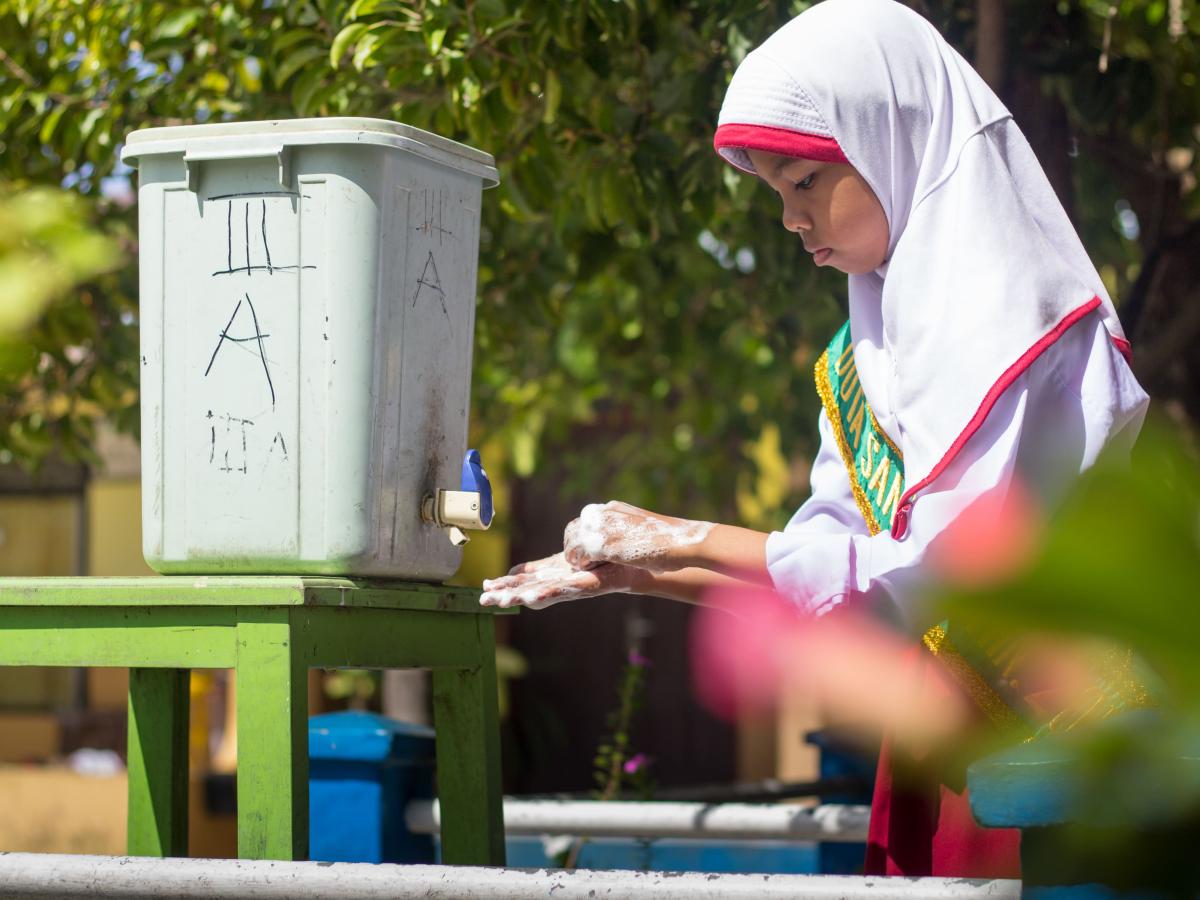Context
Only one in ten of the poorest of Indonesia’s population have access to safely managed sanitation, while 62 percent rely on unsafe drinking water. The United States and Indonesia will continue to improve water and sanitation services by helping at least 1.5 million people gain access to safe drinking water and one million to safe sanitation.
Access to safe drinking water and sanitation improves household health and makes cities safer and more climate resilient amid increasingly extreme seasonal weather fluctuations, such as heavy rains or droughts. The five-year USAID Indonesia Urban Resilient Water, Sanitation, and Hygiene (USAID IUWASH Tangguh) activity will help the Government of Indonesia make progress towards achieving its targets under the 2030 United Nations Sustainable Development Goals of 100 percent universal access to safe water and sanitation. The program works to improve the performance of water utilities to increase access to safe drinking water, sanitation, and hygiene (WASH) services for millions of vulnerable Indonesians.
USAID Indonesia Urban Resilient Water, Sanitation, and Hygiene Tangguh (USAID IUWASH Tangguh)
Despite significant progress in access to improving water services and sanitation facilities over the past 20 years, Indonesia still faces challenges around insufficient drinking water, suboptimal sanitation products and services, and inadequate water resources management (WRM), particularly in poor and underserved urban areas. The $44.1 million USAID IUWASH Tangguh activity will work with the Government of Indonesia, donor agencies, the private sector, non-governmental organizations, service utility providers, and communities to:
Strengthen WASH and WRM sector governance and financing;
Increase access for urban poor communities to climate-resilient, safely managed drinking water and sanitation services;
Improve resources management to ensure drinking water provisions remain resilient to climate change and weather patterns and are safely available throughout rainy and dry seasons; and
Increase women’s participation in leadership roles that contribute to improvements in WASH and WRM.
USAID’s IUWASH Tangguh activity works at the national level and across 38 municipalities in the provinces of North Sumatra, Banten, DKI Jakarta, West Java, Central Java, East Java, West Kalimantan, South Sulawesi, East Nusa Tenggara, and Papua. The project addresses climate-related risks, such as floods and droughts, and works to ensure climate risk data and response measures are factored into local government’s water supply services and WRM approaches.
Results
Within two years of implementation, USAID IUWASH Tangguh project has:
Improved the skills and capacity of 289 workers in WASH and WRM;
Trained 231 local government staff, community members, civil society organizations, and academics on gender equality or female empowerment through their roles in public or private sector institutions or organizations;
Trained 129 local government and water utility staff on water security;
Prepared five water utilities to manage wastewater services;
Selected 76 community intervention sites to promote demand creation for increased access to safely managed drinking water and sanitation services; and
Engaged with nine private sector partners to provide financial support for WASH and WRM improvements.
Contact
Trigeany Linggoatmodjo, USAID at Tlinggoatmodjo@usaid.gov
Alifah Lestari, USAID IUWASH Tangguh at alifah_lestari@dai.com


